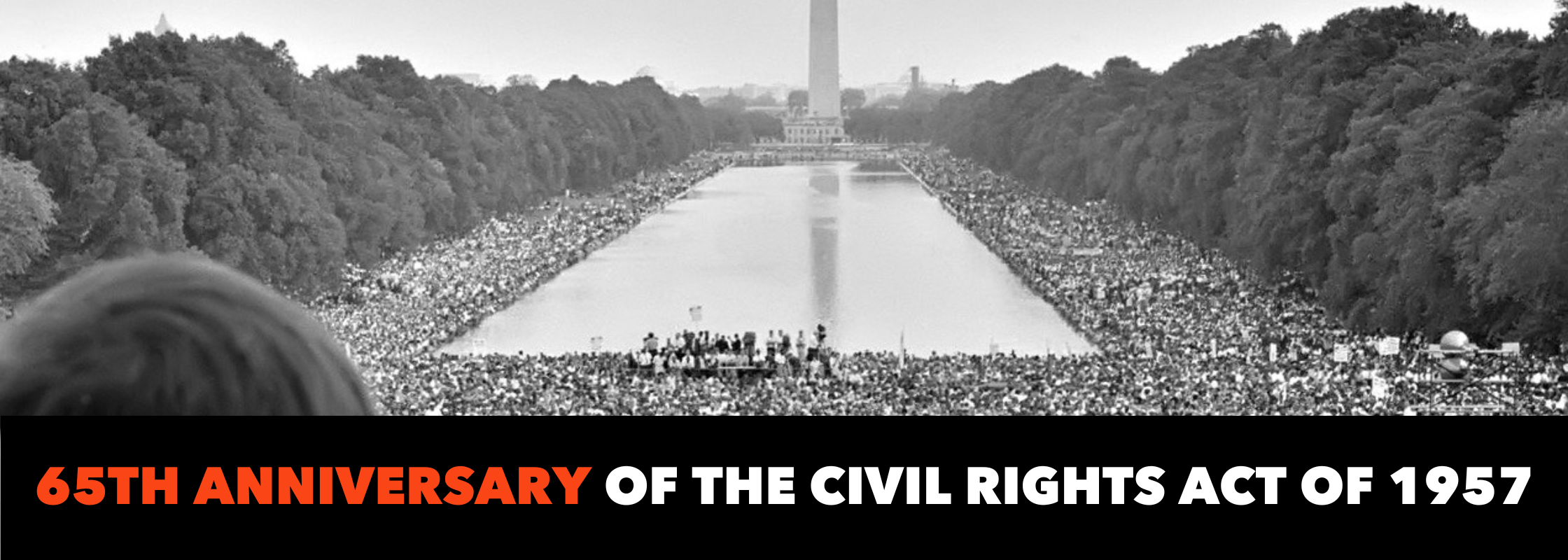65th Anniversary of the Civil Rights Act of 1957

Today marks the 65th anniversary of the establishment of the Civil Rights Act of 1957. While this act, signed by President Dwight D. Eisenhower, did not create any new laws, the legislation did:
(1) establish the Civil Rights Commission within the executive branch with the authority to investigate discriminatory conditions and to recommend corrective measures and
(2) create the Civil Rights division in the U.S. Justice Department granting federal prosecutors the power to obtain court injunctions against interference with the right to vote, and
The original purpose of this law was to increase the number of registered Black voters in the Southern states by protecting their right to vote set out in the Fifteenth Amendment of the United States Constitution more robustly. At the time, only 20% were registered with lower numbers in communities in the Deep South.
While this Act was the first federal civil rights legislation passed by Congress since the Civil Rights Act of 1875 (conferring the right to vote to Black men), the final version was stripped of its intended power from the proposed bill which was championed by activists and organizations such as the National Association for the Advancement of Colored People (NAACP). This civil rights act was followed by the Civil Rights Act of 1960 which strengthened voter registration rights and the Civil Rights Act of 1964 which banned discrimination by businesses, public places, and schools.
The fight for voting rights did not end during that era. Systemic barriers and inequities in the voting process experienced by people of color in the United States persist to this day, progressively gutting the intent and power of those civil right acts. According to the New York University School of Law’s Brennan Center for Justice, legislators in 47 states introduced more than 360 bills in 2021 with provisions that restrict voting access (as opposed to 35 restrictive bills in 15 states as of early February 2020).
It is this unabashed rolling back of progress and equity in the ability to participate fully and inclusively in this democratic process of voting in this county that underscores the importance and urgency of the YWCA’s mission to end racism and empower women. Without fully granted and embodied right to vote, Black communities will continue to be treated as “second class citizens,” unable to push for protection and progress, eradicating the historical and systemic inequities and disparate impacts that remain part of their lived experience in this country in all aspects of their daily lives and in navigating systems such as education, health care, and the economy.
As long as these processes remain oppressive and the fact that there have to be protections specifically for Blacks to exercise a right stated to confer on all Americans, justice remains delayed and our work at the YWCA will remain “until justice just is.”
